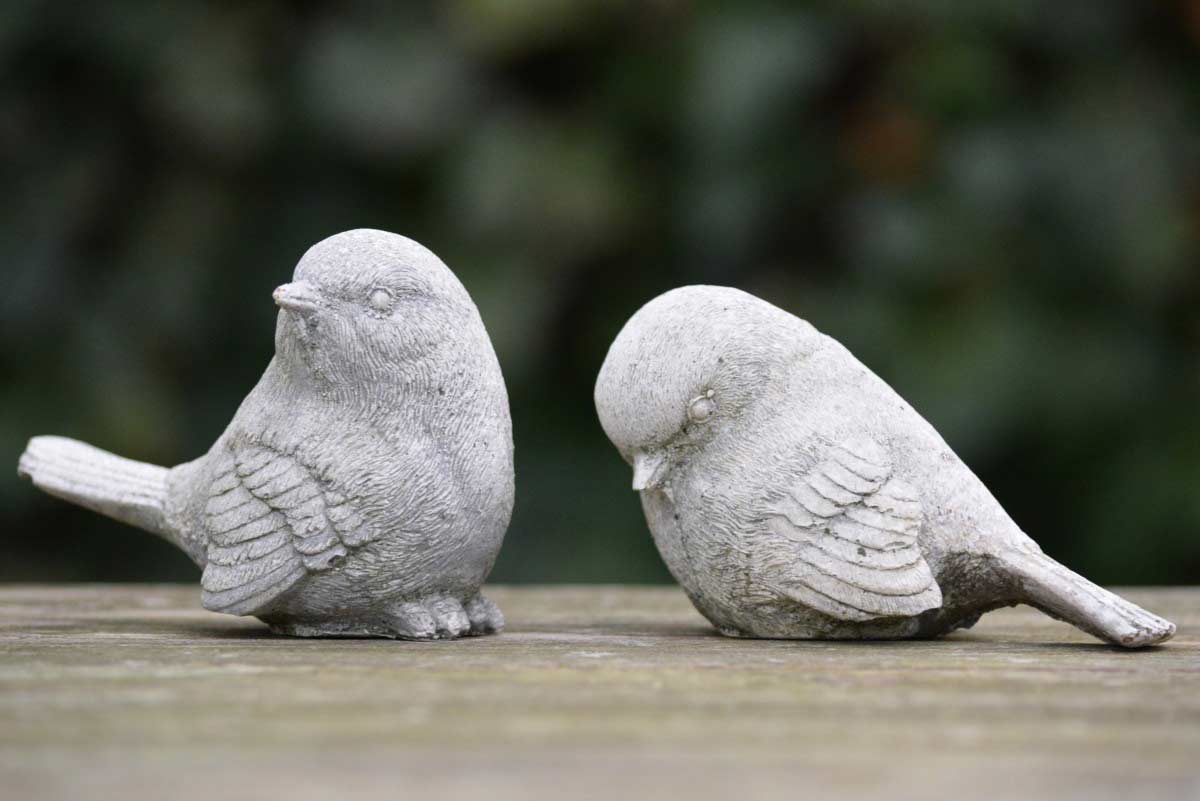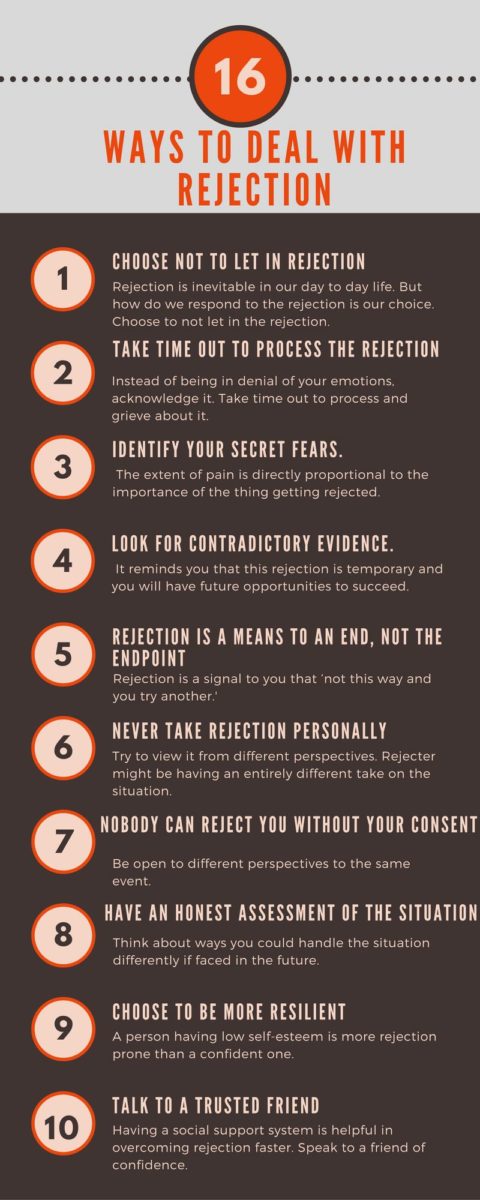The string of rejection takes a lot. Emotional souls can’t tolerate rejection unless there is no counter to the situation. It is a common question to ask, how to deal with rejection? This article will give an overview of how to deal with rejection.
Your heartbeat is quick and seems to be becoming faster by the minute. The unsettling urge to escape your body has already begun to set in after only a few short seconds. You can now feel the rejection flowing through you, a deep ache in the pit of your stomach that rapidly climbs into your chest.
It’s all too usual for people to encounter rejection. If we are willing to hear its call, rejection may teach us important life lessons despite the emotional agony. Rejection cuts to the core of one’s self-worth. Within seconds, the fight-or-flight response kicks in, and the brain tries to make sense of the situation.
Although the heading of this article reads “Rejection is not about you,” one may be excused for believing otherwise when overcome by the intense feelings that follow. Rejection is rarely about you, though, and is usually more in line with the person who is giving it.
We seldom take other people’s sentiments into account when we fight our own fights. The management of our individual inner demons is a significant undertaking in and of itself. As we have limited awareness of what lies under the surface of others, being conscious of other people’s sentiments in addition to our own may be oppressive. When it comes to someone’s emotional makeup, what you see is not always what you receive.
How to Deal With Rejection
And it is enough to never want to put yourself out there anymore. And yet you, of course, or the people and opportunities you want to give that you don’t want everything to offer.
As the other person rarely has a thorough understanding of who you are, rejection shouldn’t cause you to lose confidence in yourself. So, what is the best way how to cope with rejection and overcome the fear of rejection? Here are some psychologist-approved tips on moving up and up and down.
1. Be aware that rejection according to science is a pain
If the recent rash looks like a wound, then your brain thinks it’s one. A study by the University of Michigan on magnetic resonance imaging (fMRI) scans found that rejection actually activates the same parts of our brain as physical pain.
According to Guy Winch, psychologist and author of Sensitive First Aid: It offers an evolutionary advantage to feeling rejection as pain, according to healing rejection, guilt, failure, and other everyday heart attacks.
“This phenomenon is a legacy of our hunting past when we lived in passing tribes,” says Winch. Back when a person could not live alone without their tribe, “the rejection served as a preliminary warning system that warned us that we were at risk of being ‘voted off the island’
“Those who experienced rejection as more painful were more focused on correcting their behavior than those who did not.” Thus, they were able to stay in the fold and protect their lives (and their future descendants).
“For many generations, the experience of rejection as painful has had the benefit of survival, and our brains are wired with this default response” “
2. Give yourself time to process your hurt feelings
You have lost hope. Maybe you learned that your crash was not mutual, or that your friend stopped receiving your calls. It can arouse a complex feeling and identify and begin the recovery process.
We must have some emotional intelligence if we want to respond to rejection in a healthy way. Rejection may be reframed within an enlightened framework if handled carefully. This doesn’t emphasize the underlying emotions that come with rejection. Your main driving force should be how you Cope with rejection since, if addressed, it can harm one’s mental health in a variety of ways.
See rejection as a process of putting yourself out there, whether it be for relationships, employment chances, athletic events, musical performances, etc.
“You are emotionally human and give yourself the time to realize your feelings,” said psychologist and Certified Life Coach Dr. Pam Garcy.
“There’s an expression that ‘the easiest way is through it. Sometimes you have to let yourself have feelings that can slowly reduce their intensity.”
3. Heal your hurt ego by listing what makes you serious
“The most important thing we need to do to cope with the rejection of emotional wounds is to restore our self-esteem by focusing on what we bring to the table, whether the rejection was by a romantic partner, potential employer or neighbor?”.
Creating a list of the positive qualities you already have can prevent negative self-talk after an ego injury and help you get back in the way quickly. Winch uses the example of job rejection: “We can list our strong work ethic, accountability, reliability, our steep learning curve, etc.” Next, choose one of these qualities and write a paragraph about how previous employers saw their value and why the two will come back in the future.
“By writing, we remind ourselves deeply that we are a valued employee and can be,” says Winch. “This practice is a way of acknowledging our own worth”

4. Examine your own role in why you were rejected
Some rejection is not as personal as it really seems. The rejection of love on Tinder, for example, simply means that it took all of 20 seconds for a stranger to make a snap judgment based on the criteria that you would never be private.
However, if you were to be a member of the Happy Hour crew at the office, and your drinking invitations suddenly disappeared after work, it might be time to review your possible role in why this happened. When was the last time you asked a question (you know, the rejector) with the team, think about whether it happened on a date or a job interview.
The winch suggests a mental replay of what you said or did and how they responded, in your best memory. Did you do anything differently to improve the encounter, or could you prevent it from happening again in the future?
“It goes without saying that the other person had an obligation,” Winch said, “but the value of this test is that we have to learn what to remember about something we didn’t pay enough attention to before.”
5. Don’t lose yourself in the role you played in your rejection though
Self-examining is not such a thing as self-criticism, which will only make you feel worse. “For example, ‘For the first time next time, I’ve come to the conclusion that I shouldn’t spend fifteen minutes thinking about how much I hate my ex-husband,’ maybe the thoughtful Win”, on the other hand, is having the same thoughts, adding, ‘I’m such an idiot! I will never meet anyone! I’m lost! ‘
It is harmful and unnecessary. It will also interfere with our ability to learn from experience because it will fascinate us and alienate people.” Regrettably, many people internalize rejection by lowering their self-worth. Rejection frequently brings up unresolved childhood traumas that haven’t been appropriately addressed.
When someone is rejected, they tend to blame themselves and think they are somehow missing. Usually, instead of viewing rejection as a chance to advance, the person begins analyzing their shortcomings and insecurities.
6. Prevent the toxic pull of negative self-talk after a date, especially
Evaluating your own part of your rejection experience can give you insights on what to do next, not just because you are haunted by your second date should you avoid writing a negative story about yourself.
“If we get rejected by our date, the last thing we should do is review all our flaws in an attempt to figure out what went wrong,” says Winch “If there was no chemistry for them, there was something wrong about the match because it was something between us. Was wrong. “
Gracie suggested using a technique to check if the explanation for your rejection from Rational Emotional Behavioral Therapy (REBT) is reasonable: ask yourself, are you telling the truth, is it logical, and is it helpful?
Your instinct might be to say, “It’s not right that I was rejected, and I’m giving up.” Gracie offers a way to more rationally rethink thinking: “Although it may not be fair, giving up is not helpful to me.
It is more useful for me to decide where my ideas, suggestions, or aspects of me can improve” Another option. Is to find acceptance elsewhere. “
7. Surround yourself with people who feel valued
“Rejection destabilizes our basic need to be included,” Winch says. It’s important to spend time with people who accept you for what you do and think you are great.
“If your nine-year-old returned from school because of his feelings because he had a playdate and left him, call the parents of one of his closest friends and invite them for a playdate that afternoon,” said Winch. “Bonding with a friend who accepts and values her will make your daughter feel valued and accepted. She will forget about friends she rejected by evening.”
Just spending time with the people in your support network can be enough, Gary says, whether you have the desire to open up or need a peep to talk to be a “powerful salve” to open.
8. “Thank you, next!” Try saying
According to Garci, “salespeople sometimes become good role models, ‘Next!’ Using simple phrases like these! To prevent yourself from being rejected, social learning theory encourages you to model someone who is good at looking back.
To be clear, it is not your fault if you are rejected. Those who are not rejected are either in a subterranean grave or at home acting as armchair reviewers as they watch the nightly news. In order to create an empowered inner conversation, our focus is on accepting rejection in the context of forward movement.
After blasting the most empowered Ariana Grande and Lizo music on your playlist, someone can be your forever-needy friend – or you can be.
9. Transform Your Inner Dialogue
You do not lose your sentiments when you reframe rejection. It argues that you should turn negative emotions into positive and empowered ones. You decide to view the rejection as a necessary step in exposing yourself to new prospects rather than dwelling on it and attributing it to your low self-esteem. When seen in this light, you not only promote healthy mental concentration but also provide your approval for the subsequent rejection-related emotions to move through you rather than clinging onto them.
If addressed, rejection may eat away at the mind and body by causing unpleasant feelings. Rejection needs to be addressed rather than allowed to heal on its own because of the tendency to feel victimized and turn rejection against oneself.
Takeaways: How to Deal With Rejection
The suggestions below are a guide to assist you through rejection.
1. Rejection frequently serves as a method of saying, “No thanks, this is not for me at this moment.” Rejection has to do with the other person’s decisions. Instead of putting people through emotional hardship, they are putting their own needs and wants first.
2. To cope with the ideas and sensations that come with rejection, ask yourself the following questions:
- How can I make this rejection a motivating feeling?
- Is it really that I’m being rejected, or am I projecting my own unresolved emotions?
- What must I become to increase my value to others?
- “Why do these thoughts of rejection make me feel hurt?
3. According to an adage, no one has the right to reject you unless you give them the authority to do so. Thus, the only reliable response to rejection is to REFRAME it. However, despite everyone’s best efforts, using positive thinking is ineffective since it diverts your thoughts. By obscuring negative ideas with good ones, you negate feelings related to rejection. We are all aware that resistance breeds persistence.
4. Use the rejection as a chance to examine your own self. Rejection can occasionally be a secret blessing that directs you to a better or newer chance. Don’t spend too much time moping about; instead, pull yourself up by your bootstraps and go forward.
In conclusion, if we want to live a full and genuine life, rejection is unavoidable. Rejection is a natural result of putting oneself out there; it aids in our discovery of our genuine needs and desires.
Rejection serves as a reminder that, on a deeper level, nobody has the right to reject us unless we give them permission to do so.
If you enjoyed Tony Fahkry’s post, learn more by purchasing a copy of his most recent book, “The Power to Navigate Life.”
Maybe the most comprehensive and effective lessons on life mastery are found in The Power to Navigate Life. You have the chance to lead a fulfilling life right off the bat by reading The Power to Navigate Life.
Other Recommended Reading
- 20 Exclusive Benefits of Being a Travel Agent
- Tips on Booking Las Vegas Vacations
- How to Be Treated Like VIPs on a Cruise Ship
- Vacations made through an Agent vs. Online Booking
- 14 Unquestionable Benefits of Using a Travel Agent
- Learning to Forgive Yourself from the Heart
- How to Get Out of a Toxic Friendship
- How to Peacefully Forgive and Forget Easily
- How to Get Over a Breakup in a Healthy Way
- How to Trip for One Day on First-Time Cruise Vacations?
- What to Consider on Smooth Hotel Transfers?
- Top Benefits of Traveling Anyone Can Have
- Tiger and Monkey Relationship -Pros and Cons
- Places to Visit in Ghana Travelers Should not Miss
- Cheap and Reliable Airlines that Allow Pets in Cabin
- Tips for Bringing a Dog on a Plane Safely
- Exclusive Tips while Traveling with Pets
- A Guide to Long Haul Flights Tips and Tricks
- Pet-Friendly Vacations Near Me in the U.S.
- Flying with Large Dog in Cabin – Tips | Cost | Options | Policies
- All about Dog-Friendly Cheap Vacations in Midwest
- Dog-Friendly Vacations of your Kind at the East Coast
- Dog-Friendly Vacation Resorts You May Like

